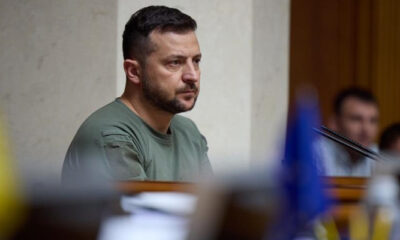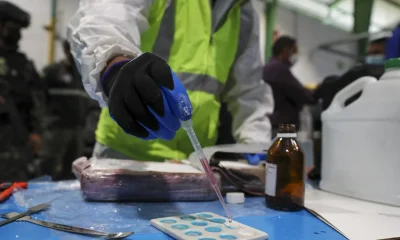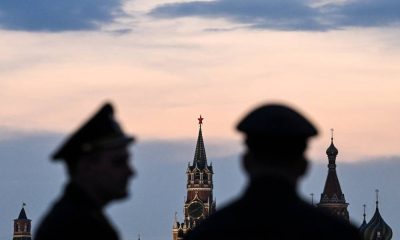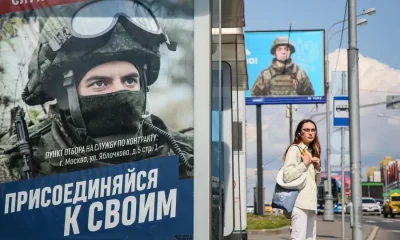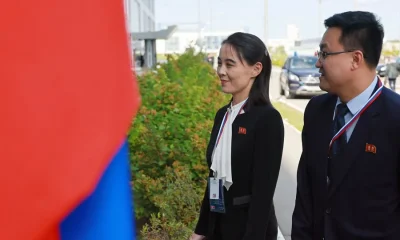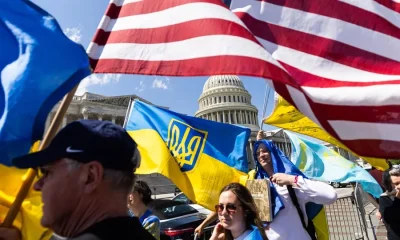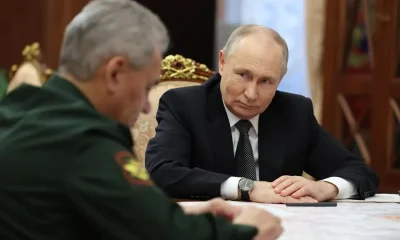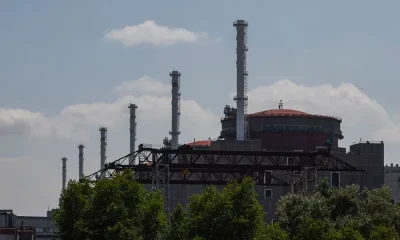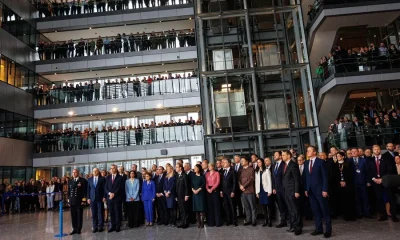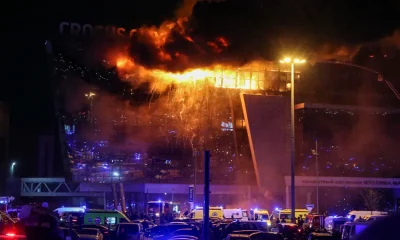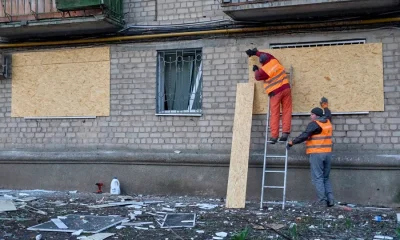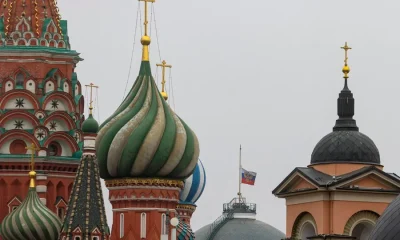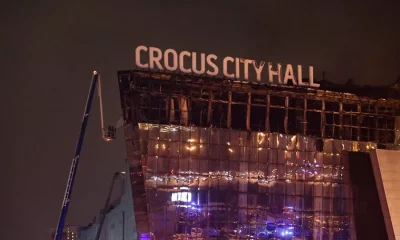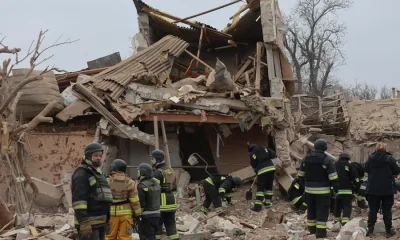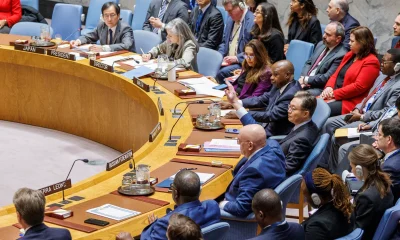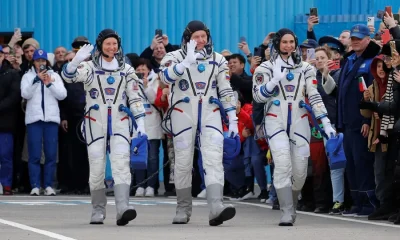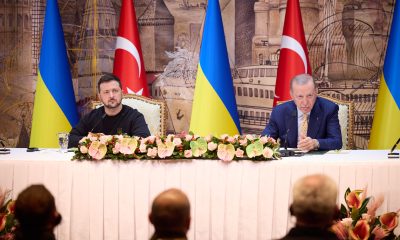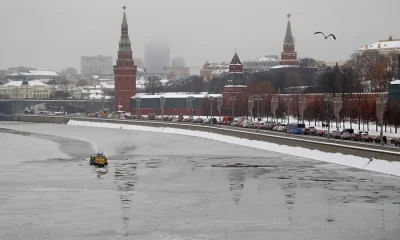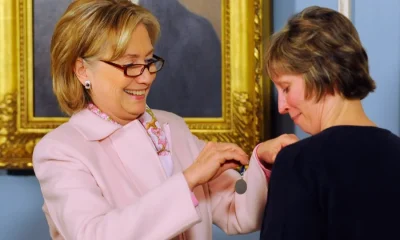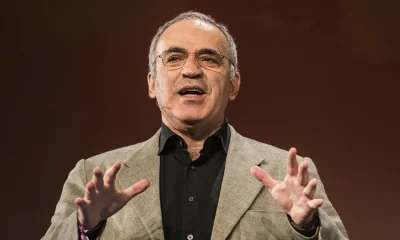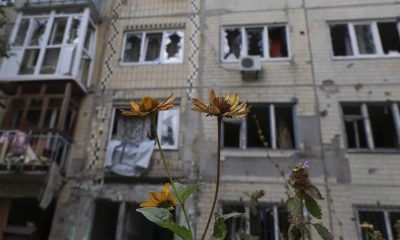International
Researcher points to Russia as responsible for the “Havana syndrome”
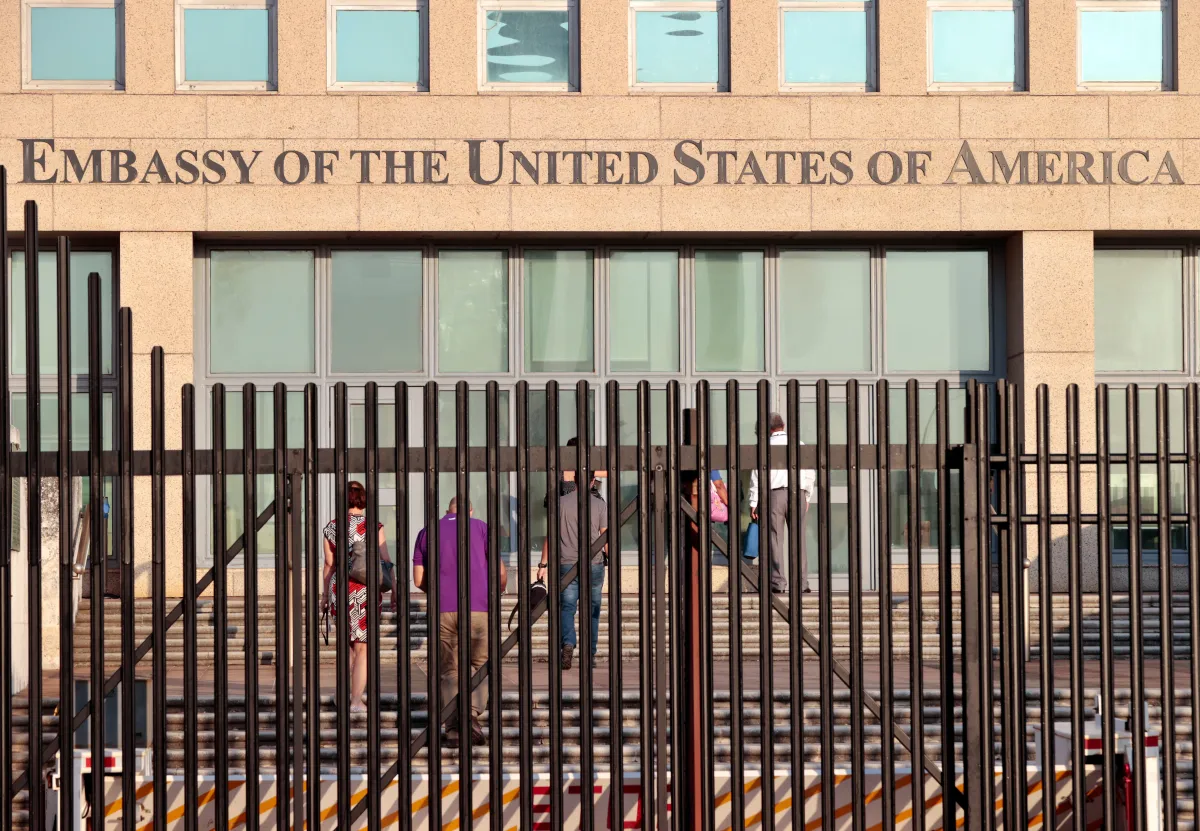
A former U.S. military investigator believes that health incidents known as “Havana syndrome” have been the result of attacks by Russia, according to the results of an investigation issued by the 60 Minutes program.
The report comes out as a result of a joint investigation by the CBS television network, the Russian media outlet The Insider, and the German magazine Der Spiegel.
Retired Army Lieutenant Colonel Greg Edgreen, who handled the Pentagon’s investigation into what the United States officially describes as “anomalous health incidents,” said on the 60 Minutes program that the affected officials received an attack from Russia.
More than 200 American diplomats and relatives destined for different countries have suffered symptoms of the so-called “Havana syndrome,” which was first detected in the Cuban capital in 2016 and would manifest with dizziness, nausea, hearing problems or migraines.
A little more than a year ago, the United States intelligence concluded that it was “very unlikely” that a foreign adversary will provoke the so-called “Havana syndrome.”
Edgreen told CBS that, in the investigation, the criterion for validating the evidence was very strict because the government does not want to accept realities such as the possible omission in its duty to protect Americans.
“Unfortunately, I can’t give the details, due to the classification,” he added. “But I can tell you that from very early (in research) I began to focus on Moscow.”
Edgreen said that the affected officials have excelled in their performance and “there was constantly a Russian link.”
According to the former soldier, “they worked against Russia, focused on Russia, and they did it extremely well.”
The then-President Donald Trump (2017-2021) decided following the detection of these health incidents to suspend consular services in Havana in 2017 and minimize diplomatic staff on the island.
Havana has denied any responsibility and set up a commission of experts that found no scientific or criminal evidence that linked the symptoms to possible sonic attacks, microwaves or other deliberate action.
The Insider, for its part, published the testimony of Mar Polymeropoulos, identified as a former operations officer in the Central Intelligence Agency (CIA), with assignments in places such as Baghdad and Kabul, and who suffered the symptoms related to “Havana syndrome” after a trip to Moscow in 2017.
The symptoms, according to this report, corresponded to the “Havana syndrome,” and for years Polymeropoulos had to struggle with his employer to access the medical care that his condition demanded.
60 Minutes indicated that, according to several of its informants last year, when President Joe Biden attended a North Atlantic Treaty Organization summit in Lithuania, a high-ranking official in the Pentagon became ill.
Edgreen pointed out that, in his opinion, “that indicates that there are no barriers to what Moscow will do, or who it will attack and that, if we do not face this head-on, the problem will get worse.”
A senior official of the United States Department of Defense who attended the NATO summit in Vilnius (Lithuania) in 2023 experienced strange symptoms similar to those of the so-called ‘Havana syndrome’, the Pentagon confirmed on Monday.
“I can confirm that a senior official of the Department of Defense experienced symptoms similar to those reported in other instances,” Sabrina Singh, one of the Pentagon’s spokespersons, said on Monday during a press conference.
The official, whose identity was not revealed, was not part of the official delegation of the Secretary of Defense, Lloyd Austin, at the NATO summit in Vilnius, but attended “separately, meetings that were part of the summit,” the spokeswoman explained.
Singh did not specify what type of symptoms the affected person suffered, citing medical privacy.
International
U.S. Senate Rejects Budget, Bringing Government Closer to Shutdown Amid DHS Dispute

The U.S. Senate voted on Thursday against a budget proposal in a move aimed at pressuring changes at the Department of Homeland Security (DHS), following the killing of two civilians during a deployment of immigration agents in Minneapolis.
All Senate Democrats and seven Republican lawmakers voted against the bill, which requires 60 votes to advance, pushing the country closer to a partial government shutdown that would cut funding for several agencies, including the Pentagon and the Department of Health.
The rejection came as Senate leaders and the White House continue negotiations on a separate funding package for DHS that would allow reforms to the agency. Proposed measures include banning Immigration and Customs Enforcement (ICE) agents from wearing face coverings and requiring them to use body-worn cameras during operations.
The vote took place just hours after President Donald Trump said he was “close” to reaching an agreement with Democrats and did not believe the federal government would face another shutdown, following last year’s record stoppage.
“I don’t think the Democrats want a shutdown either, so we’ll work in a bipartisan way to avoid it. Hopefully, there will be no government shutdown. We’re working on that right now,” Trump said during a Cabinet meeting at the White House.
International
Trump Says Putin Agreed to One-Week Halt in Attacks on Ukraine Amid Extreme Cold

U.S. President Donald Trump said on Thursday that he secured a commitment from Russian President Vladimir Putinto halt attacks against Ukraine for one week, citing extreme weather conditions affecting the region.
“Because of the extreme cold (…) I personally asked Putin not to attack Kyiv or other cities and towns for a week. And he agreed. He was very pleasant,” Trump said during a Cabinet meeting broadcast by the White House.
Trump acknowledged that several advisers had questioned the decision to make the call.
“A lot of people told me not to waste the call because they wouldn’t agree. And he accepted. And we’re very happy they did, because they don’t need missiles hitting their towns and cities,” the president said.
According to Trump, Ukrainian authorities reacted with surprise to the announcement but welcomed the possibility of a temporary ceasefire.
“It’s extraordinarily cold, record cold (…) They say they’ve never experienced cold like this,” he added.
Ukrainian President Volodymyr Zelensky later commented on the announcement, expressing hope that the agreement would be honored.
International
Storm Kristin Kills Five in Portugal, Leaves Nearly 500,000 Without Power

Storm Kristin, which battered Portugal with heavy rain and strong winds early Wednesday, has left at least five people dead, while nearly half a million residents remained without electricity as of Thursday, according to updated figures from authorities.
The revised death toll was confirmed to AFP by a spokesperson for the National Emergency and Civil Protection Authority (ANPEC). On Wednesday, the agency had reported four fatalities.
Meanwhile, E-Redes, the country’s electricity distribution network operator, said that around 450,000 customers were still without power, particularly in central Portugal.
Emergency services responded to approximately 1,500 incidents between midnight and 8:00 a.m. local time on Wednesday, as the storm caused widespread disruptions.
The Portuguese government described Kristin as an “extreme weather event” that inflicted significant damage across several regions of the country. At the height of the storm, as many as 850,000 households and institutions lost electricity during the early hours of Wednesday.
Several municipalities ordered the closure of schools, many of which remained shut on Thursday due to ongoing adverse conditions.
Ricardo Costa, regional deputy commander of the Leiria Fire Brigade, said residents continue to seek assistance as rainfall persists.
“Even though the rain is not extremely intense, it is causing extensive damage to homes,” he noted.
In Figueira da Foz, a coastal city in central Portugal, strong winds toppled a giant Ferris wheel, underscoring the severity of the storm.
-

 Central America5 days ago
Central America5 days agoGuatemala seizes over a ton of cocaine hidden in flour at Pacific port
-

 Central America4 days ago
Central America4 days agoGuatemala Police Arrest Prison Guard Caught in the Act of Extortion
-

 Central America4 days ago
Central America4 days agoHonduras swears in conservative president Asfura after disputed election
-

 International5 days ago
International5 days agoHistoric snowstorm paralyzes Toronto after 60 centimeters of snow
-

 Central America4 days ago
Central America4 days agoBukele leads public trust rankings as UCA survey highlights gains in security
-

 International2 days ago
International2 days agoFootball Fan Killed in Clashes After Colombian League Match
-

 International5 days ago
International5 days agoSpain’s irregular migrant population rises to 840,000, study finds
-

 Central America2 days ago
Central America2 days agoGuatemala President Says Starlink Terminal Found Inside Prison
-

 International4 days ago
International4 days agoDoomsday clock moves to 85 seconds before midnight amid rising global risks
-

 International4 days ago
International4 days agoWinter Storm Fern Leaves 30 Dead and Over One Million Without Power Across the U.S.
-

 International1 day ago
International1 day agoU.S. Senate Rejects Budget, Bringing Government Closer to Shutdown Amid DHS Dispute
-

 Sin categoría4 days ago
Sin categoría4 days agoEight Killed in Series of Armed Attacks in Ecuador’s Manabí Province
-

 International4 days ago
International4 days agoSpain approves plan to regularize up to 500,000 migrants in Historic Shift
-

 International5 days ago
International5 days agoRights group says nearly 6,000 killed in Iran protest crackdown
-

 International2 days ago
International2 days agoRubio Says U.S. Could Participate in Follow-Up Russia-Ukraine Talks
-

 International2 days ago
International2 days agoMissing Spanish Sailor Rescued After 11 Days Adrift in Mediterranean
-

 Sin categoría4 days ago
Sin categoría4 days agoEl Salvador Launches Fourth Year of Ocean Mission to Protect Marine Ecosystems
-

 Central America10 hours ago
Central America10 hours agoPanama Supreme Court Strikes Down Panama Ports Concession as Unconstitutional
-

 International5 days ago
International5 days agoVenezuela frees at least 80 political prisoners, NGO says
-

 International5 days ago
International5 days agoEU launches new probe into X over AI-generated fake nude images
-

 International1 day ago
International1 day agoStorm Kristin Kills Five in Portugal, Leaves Nearly 500,000 Without Power
-

 Central America10 hours ago
Central America10 hours agoU.S. and Guatemala Sign Trade Deal Granting Zero Tariffs to Most Exports
-

 International1 day ago
International1 day agoTrump Says Putin Agreed to One-Week Halt in Attacks on Ukraine Amid Extreme Cold
-

 International1 day ago
International1 day agoMan Arrested After Vehicle Crashes Into Jewish Institution in Brooklyn
-

 International5 days ago
International5 days agoSevere winter storm grips U.S., leaves multiple dead as extreme cold persists
-

 International5 days ago
International5 days agoFrance debates ban on social media for children under 15

























